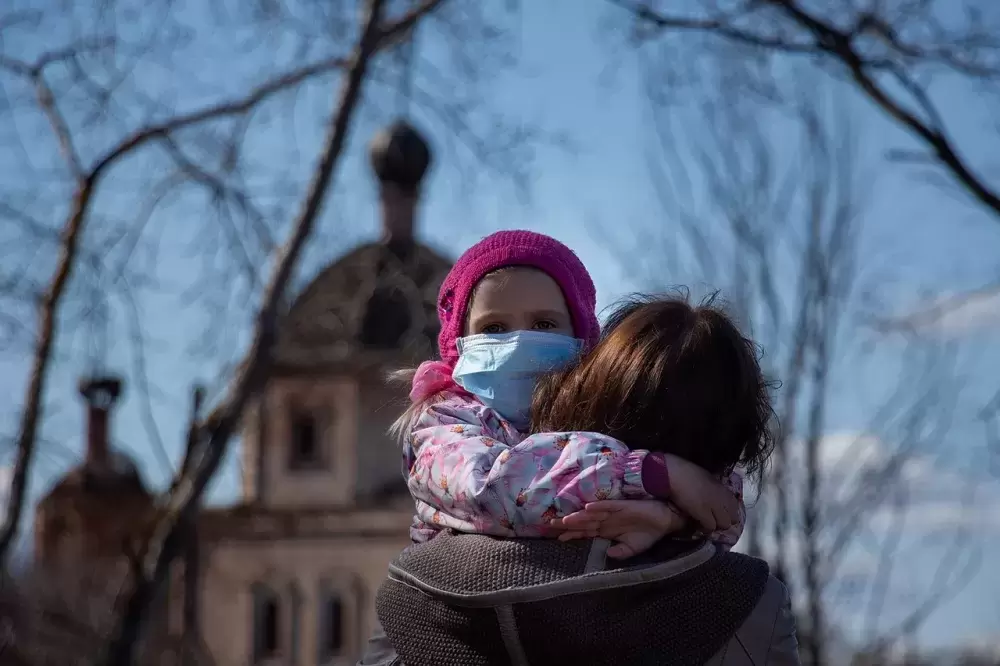Wearing a mask will not protect you from getting the new coronavirus while out in public, says an NTC nurse in her message for Nuu-chah-nulth communities.
Francine Gascoyne, NTC community health nurse clinical leader, cited guidance from the World Health Organization and the B.C. Centre for Disease Control for those concerned about contracting the virus that leads to COVID-19.
“We do see a lot of people who are out at the grocery store and they’re wearing masks; it isn’t recommended that you do need a mask,” she said in a video recently posted online. “If you’re not wearing the mask properly, then if you’re going to adjust the mask and you’re still touching your face, that is how the virus can then enter our body.”
Gascoyne referenced the advice of the WHO, which states that masks are only recommended if one has symptoms of a fever and cough. There is no evidence a mask can protect someone who isn’t sick with COVID-19, according to the WHO.
“If you are healthy, you only need to wear a mask if you are taking care of a person with suspected [coronavirus] infection,” stated the organization’s website.
“It may be less effective to wear a mask in the community when a person is not sick themselves,” states the B.C. Centre for Disease Control. “Masks may give a person a false sense of security and are likely to increase the number of times a person will touch their own face (e.g., to adjust the mask).”
These health authorities recommend that only those with symptoms wear a mask, or someone who is in the same room as person with COVID-19.
“Gloves are not recommended to be used while you’re out grocery shopping as well,” added Gascoyne. “When you’re wearing the gloves, you’re still touching all of the surfaces…and then you go touch your face.That is how the virus can still enter the body through our mucous membranes, such as our eyes, our nose, our mouth.”
The novel coronavirus is transmitted by tiny droplets emitted when an infected person coughs, sneezes or speaks. These particles can live on surfaces for as long as a few days, and infect someone by entering the mouth, eyes or nose. To stop transmission of the highly contagious virus, health authorities stress frequent hand washing and keeping a six-foot distance from others while out in public. With the pandemic continuing to spread around the world, people are urged to stay at home whenever possible.
As information on the new coronavirus evolves, so is the messaging coming from public health officials. On Monday Canada’s Public Health Officer Dr. Theresa Tam stated that handmade face covers could be an additional measure to mitigate the spread of COVID-19. This can help protect others from contracting the virus, but a mask does not protect the person wearing it, said the top doctor. This guidance is based on emerging studies indicating that the coronavirus could be spread by those who have not yet shown symptoms – or by infected individuals who will never become sick.
“Wearing a non-medical mask can reduce the chance of your respiratory droplets coming into contact with others or landing on surfaces,” said Tam during a press conference in Ontario. “The Special Advisory Committee on COVID-19 has come to a consensus that wearing a non-medical mask even if you have no symptoms is an additional measure that you can take to protect others around you in situations where physical distancing is difficult to maintain, such as in public transit or maybe at the grocery store.”
Dr. Bonny Henry, B.C’s provincial health officer, is on the COVID-19 advisory committee guiding Canada’s stance on masks. Unlike a recommendation to wear homemade masks that recently came from the US Centre for Disease Control and Prevention, Henry said that the province isn’t advising people to cover their mouths and nose while in public - but such a practice is permissible as an additional measure. With Canada facing shortages of medical-grade masks, such equipment must be reserved for those on the front lines of health care, said Henry.
“Medical masks and respirators need to be reserved for our health care settings and health care workers,” she said.
As of Monday afternoon, British Columbia has reported 1,266 confirmed COVID-19 cases, including 79 on Vancouver Island, but 783 of those infected have fully recovered and are cleared to leave isolation. There were 26 additional cases tracked by the province on Sunday, followed by another 37 on Monday. One more COVID-related death has been reported: a man in his 40s who succumbed to illness at home. He was known to health authorities as a positive case.







